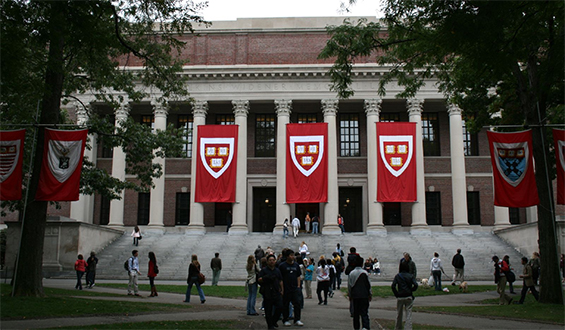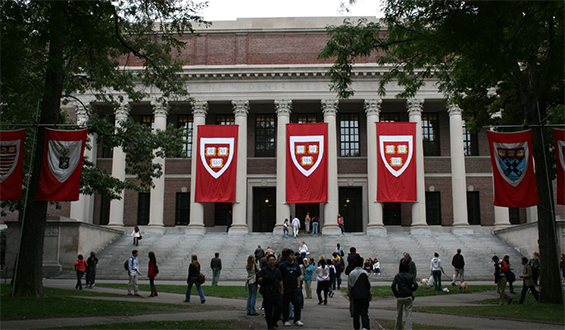 (Photo: Joseph Williams, Creative Commons)
(Photo: Joseph Williams, Creative Commons)
The Harvard Graduate School of Education has introduced a new, multi-year initiative in an effort to rethink the education and child development systems currently being used in the United States.
The project, “By All Means: Redesigning Education to Restore Opportunity,” is currently being introduced in six cities in order to help make improvements to their education systems. The initiative will consider a number of community factors which may affect the lives of local children instead of concentrating specifically on what is going on inside the classroom.
The project represents a change from common education reform techniques, which usually focus on in-school factors such as improving teacher quality.
“Schools alone, as currently constituted and as currently conceived, are an insufficient intervention to bring about the goal we’re trying to achieve,” said Paul Reville, founding director of HGSE’s Education Redesign Lab, which is operating the project. “Schools alone can’t do the job. If we’re going to get all kids ready for success, it’s going to take a broader community effort.”
A “children’s cabinet” including school superintendents, community leaders, and government representatives will be created by the project in each of the six cities. Each separate group will work with a Harvard consultant toward the achieving a childhood development goal.
City leaders will be expected to meet several times over the next few years and share the practices that worked best for them. Harvard professors will also keep them in touch with experts, reports Rebecca Klein for The Huffington Post.
Reville referred to the six cities as laboratories in which different models of education will be tested.
“We don’t expect them to transform the world of education and child development overnight, but they’ve agreed to make a strong run at it,” he said.
Each city will be responsible for how their program works. If it is a success, Reville said there are plans to launch a second-round program with new cities in the coming years, writes Chris Weller for Tech Insider.
He added that the main goal of the project is to offer clear data pertaining to the strength of community involvement in education. By doing so, he said he hopes to create similar success stories around the country in addition to identifying policy work that needs to be done in order to eliminate barriers.
One example of such barriers is a trend known as the “summer setback.” In her book “Unequal Childhoods,” sociologist Annette Lareau discovered that while children from wealthier families tend to look to further their education and enrichment over the summer months, poorer families value free, unstructured play time. This results in children from more affluent families retaining more of their education for the following school year, causing the knowledge gap between the two classes to continuously grow and as a result, overall academic achievement is affected.
Reville would like to see By All Means create affordable summer education courses for low-income families.
“Instead of treating access to summer learning an accident of birth,” he says, “you treat it as a critical part of a public education and, therefore, an entitlement.”




